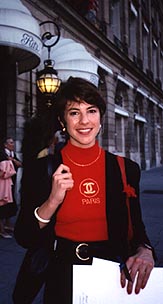 The following is a series that profiles leaders in the complementary & alternative medicine field. We hope to introduce personalities who played an important role in opening the doors to complementary & alternative medicine in the U.S.
The following is a series that profiles leaders in the complementary & alternative medicine field. We hope to introduce personalities who played an important role in opening the doors to complementary & alternative medicine in the U.S.
In this edition, we will discuss the legalization of acupuncture in California. This was a watershed event, subsequently effecting jurisdiction across the country. Since California in 1975, about 30 other states have legalized acupuncture. The process is an arduous one, according to the American Association of Oriental Medicine (AAOM), an advocate group acting on the behalf of acupuncturists. It is based on strong individuals who have the drive to do the work involved in changing the system. The following account demonstrates the hurdles, and more importantly, the personalities that helped create an important chapter in the history of complementary and alternative medicine in the U.S. It is a story of a woman, Barbara Bernie, who decided she wanted to make a difference. Ms. Bernie, recently celebrated her 80th birthday, making this a momentous occasion to share her historical contribution to U.S. healthcare.
In the early 1970's, when Silicon Valley was already in full gear, nearby Chinatown, San Francisco, was experiencing another kind of revolution. Unlike the high profile, modern movement of its Silicon Valley neighbor, this other revolution was undercover. At this time, acupuncture was still illegal across the country. So, hidden behind storefronts in the tiny back rooms of Chinatown, acupuncturists practiced surreptitiously to satisfy a growing demand. Their patients included not only Chinese immigrants, but Americans who came from afar to seek their healing remedies, including acupuncture, herbal medicine, Qi Gong, and other aspects of Chinese medicine.
Among the early acupuncture patients in California was Barbara Bernie, an architecture and design consultant originally from New York. Her experiences with acupuncturists in Chinatown and abroad were to have a transformative effect on her, and, eventually the entire country. Ms. Bernie went on to join the "Who's Who" in the history of complementary & alternative medicine in the U.S. by working toward a law to have acupuncture legalized in the state of California.
At a recent acupuncturist's convention of the American Association of Oriental Medicine (AAOM), Barbara Bernie, along with one of her Chinese colleagues, Eva Chau, revealed the "drama" that led to the legalization of acupuncture in California. Their efforts laid the groundwork for other significant laws, including the hotly debated nutritional supplement labeling law (DSHEA).
Barbara Bernie, a tall woman with striking white hair, kept the audience of the AAOM riveted with her account of the story that unfolded in California when she started her involvement with acupuncture in 1971. She reminded them that while acupuncture is seen as an important complement to western medicine today, in the '70's it was still considered "voodoo medicine" and even "quackery." In fact, it was illegal, and its practitioners, including very famous ones from China, were being arrested.
In 1971, Ms. Bernie, who had been living and working in California with her family since 1955, suffered from chronic fatigue syndrome. After exhausting the capabilities of her conventional physician, she visited an acupuncturist in Vancouver, Canada, where, though officially illegal, acupuncture was being practiced openly on celebrities and heads of state. Upon experiencing the positive effects of her treatments with the renowned acupuncturist, Kok Yuen Leung, Ms. Bernie returned to the U.S. with a referral to an acupuncturist practicing surreptitiously in San Francisco. To prevent herself from being arrested, this acupuncturist, like others, practiced in a condemned building in the heart of Chinatown. Ms. Bernie recounted her first visit to this mysterious place, a tiny room filled with moxibustion smoke in a dilapidated building. The meeting made a strong impression on Ms. Bernie. Why should doctors practicing a form of medicine legal in Europe for hundreds of years and respected for thousands of years in Asia be subject to these working conditions? Why should she, as a patient, be at risk for breaking the law?